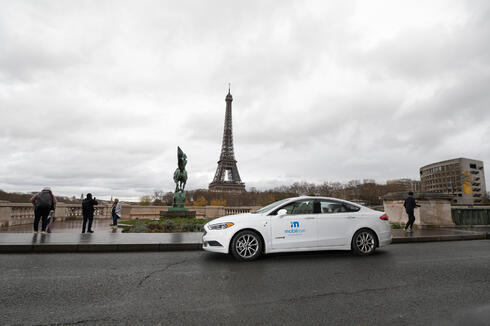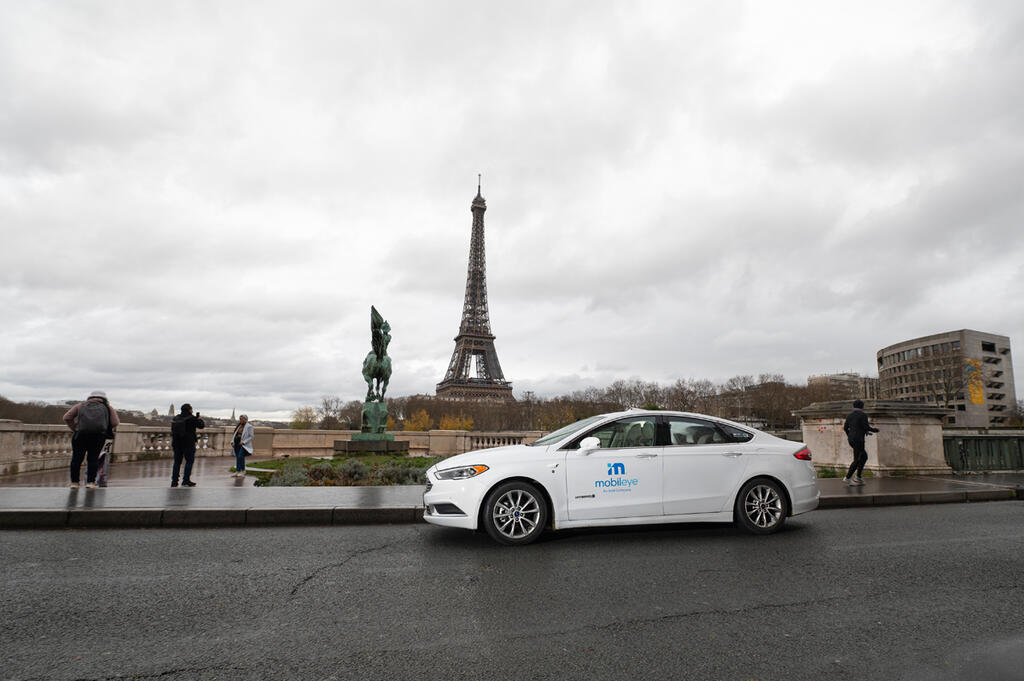
China’s autonomous car market eyes Israel with suspicion amid technology security fears
As Chinese companies rise in smart driving, accusations against Israeli firms intensify, sparking nationalistic backlash.
While the world worries about a Chinese takeover of the car industry, in China, there is growing concern over cars equipped with Israeli technology. According to media reports, some with ties to the Chinese government, safety systems developed in Israel could lead to car accidents due to the potential for remote takeover by Israeli operatives. The incidents sparking these concerns include recent explosions of Hezbollah communication devices, the assassination of Nasrallah, and reports of attacks on Iran and other nations China aims to support.
In a recent analysis published on the Chinese site "Autohome," it was stated that “making communication devices explode is not a difficult task. But if an autonomous driving system in a car is weaponized, it will pose a real problem.”
Many articles discussing the so-called “Israeli threat” to the Chinese car market mention Mobileye, the leading Israeli company in autonomous driving technology, and “reveal” the Western companies partnering with it. The Autohome article speculates, “This short-term behavior could impact the future of Israeli companies in smart driving. Major Western car manufacturers like BMW, Audi, and Volkswagen rely on this technology. In light of Israeli actions, will these manufacturers still dare to use Israeli technology?” Chinese media attempts—at times exaggeratedly—to connect the "destructive potential" of Israeli automotive technology to Western car companies that compete with China.
The mysterious foreign company
Meanwhile, conspiracy theories in China are on the rise, with some Chinese media outlets presenting inaccurate or even entirely false information. For example, one article last week claimed, “Israeli companies engage in illegal mapping of Chinese roads—and they are also partially American-owned.” It further alleged that “an obscure Israeli company has taken over 28% of the Chinese smart driving market. This international giant can no longer hide.” Another article in 'Popular Science' detailed an incident involving a “foreign giant in the driving field,” with a title reading, “The Roots Lead Back to Israel! Illegal Geographic Mapping Conducted in China.”
According to the Chinese Ministry of State Security, the mysterious company is “a foreign contractor involved in sensitive national projects, working with a Chinese company licensed for geographic mapping. This collaboration enabled the foreign company to conduct unauthorized mapping and transfer Chinese state secrets to a third-party country. The foreign company allegedly purchased vehicles equipped with GPS and radar installations, effectively manipulating the local Chinese company into conducting mapping for it.”
Although the Chinese government has not named the accused companies, several responded quickly to deny involvement, including Tesla, Geely, mapping service provider NavInfo, and ride-hailing company DiDi. Mobileye also issued a statement in China affirming, “We continuously invest in regulatory compliance, including in China, where we operate under the oversight of authorized bodies and in full accordance with the law.”
Chinese media has fueled these conspiracy theories. “Why did influential players in the Chinese automobile market choose products from a foreign company?” asked one article. “In the past, China lacked the necessary technology, but today China leads the field.” Other articles extol the superiority of Chinese technology over Western and particularly Israeli innovations, predicting that Western technology will soon disappear from Chinese roads due to China’s technological advances.
This sentiment may be a response to the wave of anti-Chinese regulations in Europe and the US. Currently, discussions are underway between the European Union and China regarding potential protective tariffs on Chinese-made cars imported into Europe. Last week, the Chinese government reportedly warned several manufacturers to "halt immediately" any expansion plans into Europe amid a possible freeze on such relations. Other reports suggest a possible mutual procurement agreement in Europe to allow negotiations to proceed.
How will rising tensions affect the ability of Israeli tech companies to operate in the Chinese car market, one of the fastest-growing in the world? Time will tell, but one thing is clear—China may be looking for a scapegoat, and Israeli tech firms might face not only competition from Chinese companies but also a wave of anti-Western nationalism.














